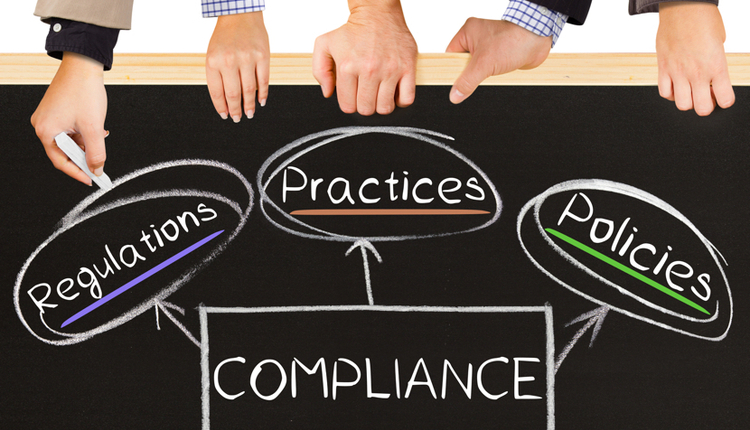
Image by: elinedesignservices, ©2017 Getty Images
Experienced business leaders are constantly looking for ways to improve and make the most of their resources. Whether driven by a need to cut costs or the pursuit of a competitive advantage, cloud adoption supports many organizational goals, while allowing a business to develop new strategies and to invest in digital transformation. There are a number of key reasons to consider a software as a service (SaaS) solution, not the least of which is the fact that so much information is moving to the cloud, no matter if it's public, private, or hybrid. Information governance professionals need to be in a position to establish control over these information assets, regardless of where they reside.
Some of the information governance solutions to consider for a SaaS implementation include enterprise records and content management, records retention schedule management, archiving and file identification, and analysis and classification.
Here are five of the biggest reasons to consider SaaS for your next information governance purchase.
1. Usability Drives Compliance
One of the greatest challenges that records managers and information governance professionals face is the user adoption of tools to fully classify and manage records, data, and information. SaaS software is available via web browsers, and as such, it is a vehicle that users are already familiar with. This makes the learning curve low and adoption rates high—much higher than with typical records management systems and tools. Also, since users can access the application from any device (in many cases, from smartphones and tablets), they will be more likely to adopt the application and improve an organization’s compliance posture.2. Subscription-Based Pricing Translates to a Low Cost of Entry
A SaaS solution has no hardware costs and minimal setup and implementation costs. Deployment and setup are quick and easy, requiring little involvement from information technology (IT). Lower upfront costs can translate to faster approval processes for software implementation projects, since you may be able to fund the project with operating expenses instead of capital, which require a much longer and more rigorous approval cycle. Annual subscription pricing makes this process easier as well. This model keeps IT costs consistent and lower than traditional software solutions, which have perpetual licensing models in addition to upfront acquisition and implementation costs.3. Scalability Addresses Information Asset Explosion
Scalability is never a concern with SaaS since it resides in the cloud. While you may need to adjust your subscription(s), if based on size and/or user population, your provider will scale the solution to address your organization’s needs. This is especially relevant in a records management solution, because they often start out as pilots and proof of concepts, but eventually, as information governance is adopted within the enterprise, the amount of data that is being managed by the solution can grow substantially. Mergers, acquisitions, and divestiture programs accelerate the need for scalability, up or down, and thus, a records management SaaS solution is a welcome strategic component for compliant integrations and divestitures.4. Upgrades Support Ongoing Compliance
A SaaS provider will manage solution upgrades automatically, assuming there is no customization beyond what is offered during configuration and implementation. This eliminates, or at least reduces, the resource needs from an IT department. Organizations will immediately be able to take advantage of the latest features the SaaS solution has to offer, and these will often be driven by compliance obligations. Having the latest features may be essential to staying in, and assuring, compliance.5. Integration Enables Control of Disparate Repositories
As mentioned previously, information is exploding beyond on-premise servers to public, private, and hybrid cloud solutions. It, therefore, stands to reason that a SaaS records management solution is a stronger contender for extending information controls to cloud-based content stores. Since most SaaS providers enable some level of customization through an API to connect to other business systems (e.g., SAP, enterprise resource planning, or customer relationship management), the SaaS records management solution has a unique advantage in extending this type of control or federation. By adding integration to a tool like Watson or Magellan, artificial intelligence engines can further facilitate compliance by monitoring records retention events, like employee attrition, and signal information governance professionals or act on records automatically that have a retention trigger tied to such an event.The Bottom Line
To select information governance tools, records management and information professionals need to consider not only classic, on-premise applications and technology, but they must now also consider a new breed of information governance solutions—SaaS. An information governance solution hosted in the cloud provides substantial benefits extending beyond costs, to usability, integration, and retention compliance for records, data, and information.Recommending an information governance SaaS solution does not take away or mitigate the inherent risks of cloud-based computing platforms. Records managers, legal, compliance, and IT stakeholders must assess the solutions against their information security, data privacy, and compliance requirements, particularly in the case of organizations that are covered in the European Union’s General Data Protection Regulation (GDPR), which will go into effect in May of 2018. Other key considerations for information governance SaaS and other SaaS solutions include ensuring always-on data availability and legal hold capabilities.
In essence, a modern and comprehensive records management solution needs to "follow the user" and collect enterprise data from many different data sources in a nimble and unified way that enables IT and security organizations to meet their data availability and information governance needs.
Brett Claffee is the Information Governance Business Lead from Paragon Solutions' Information Management Practice and has 15 years of records management and over 20 years of Life Sciences industry experience. For more information, visit www.consultparagon.com or follow @consultparagon.















